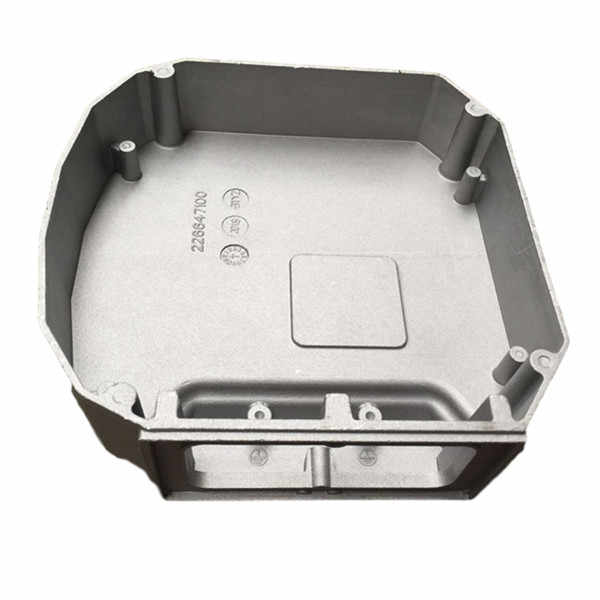Rumored Buzz on Alcast Company
Rumored Buzz on Alcast Company
Blog Article
Alcast Company Fundamentals Explained
Table of ContentsSome Ideas on Alcast Company You Need To KnowA Biased View of Alcast CompanyThe 9-Minute Rule for Alcast CompanySome Known Questions About Alcast Company.The Buzz on Alcast CompanyExamine This Report about Alcast Company
The subtle difference hinges on the chemical web content. Chemical Contrast of Cast Light weight aluminum Alloys Silicon advertises castability by decreasing the alloy's melting temperature and improving fluidness during spreading. It plays an important duty in enabling elaborate molds to be loaded properly. Furthermore, silicon adds to the alloy's strength and wear resistance, making it important in applications where toughness is critical, such as vehicle components and engine elements.It additionally improves the machinability of the alloy, making it less complicated to refine into finished items. In this way, iron adds to the total workability of aluminum alloys. Copper raises electrical conductivity, making it useful in electric applications. It also enhances corrosion resistance and includes in the alloy's general toughness.
Manganese adds to the strength of aluminum alloys and enhances workability. Magnesium is a lightweight aspect that provides toughness and effect resistance to aluminum alloys.
The Best Guide To Alcast Company
It permits the production of light-weight elements with outstanding mechanical residential or commercial properties. Zinc enhances the castability of light weight aluminum alloys and aids control the solidification process throughout casting. It boosts the alloy's toughness and solidity. It is typically located in applications where intricate forms and fine details are needed, such as decorative spreadings and particular vehicle parts.

The key thermal conductivity, tensile toughness, return strength, and prolongation differ. Select suitable basic materials according to the performance of the target item created. Amongst the above alloys, A356 has the highest possible thermal conductivity, and A380 and ADC12 have the least expensive. The tensile restriction is the opposite. A360 has the most effective return stamina and the highest elongation price.
Top Guidelines Of Alcast Company

In precision spreading, 6063 is appropriate for applications where intricate geometries and high-quality surface area coatings are extremely important. Instances consist of telecommunication enclosures, where the alloy's premium formability permits for sleek and aesthetically pleasing layouts while preserving architectural stability. Similarly, in the Lighting Solutions sector, precision-cast 6063 parts develop elegant and reliable lighting fixtures that call for elaborate shapes and good thermal performance.
It leads to a better surface area finish and far better corrosion resistance in A360. Moreover, the A360 exhibits premium prolongation, making it optimal for complex and thin-walled components. In accuracy spreading applications, A360 is well-suited for markets such as Consumer Electronic Devices, Telecommunication, and Power Devices. Its enhanced fluidity enables for complex, high-precision elements like mobile phone coverings and communication device housings.
Getting The Alcast Company To Work
Its one-of-a-kind residential or commercial properties make A360 an important selection for accuracy spreading in these industries, improving product toughness and top quality. aluminum metal casting. Aluminum alloy 380, or A380, is a commonly utilized casting alloy with numerous distinct characteristics.
In precision spreading, light weight aluminum 413 radiates in the Consumer Electronics and Power Tools markets. It's generally used to craft elaborate parts like smartphone housings, video camera bodies, and power device housings. Its precision is exceptional, with limited tolerances up to 0.01 mm, ensuring flawless item assembly. This alloy's exceptional corrosion resistance makes it an exceptional option for outside applications, guaranteeing lasting, durable products in the stated industries.
Alcast Company - An Overview
Once you have determined that the aluminum die casting procedure is suitable for your project, a crucial following action is selecting one of the most appropriate alloy. The light weight aluminum alloy you pick will significantly affect both the casting procedure and the residential properties of the end product. As a result of this, you must make your decision carefully and take an enlightened approach.
Determining one of the most suitable aluminum alloy for your application look these up will suggest evaluating a broad array of characteristics. These relative alloy attributes follow the North American Die Spreading Association's guidelines, and we have actually divided them right into two categories. The very first category addresses alloy features that impact the manufacturing procedure. The second covers characteristics impacting the properties of the final item.
Top Guidelines Of Alcast Company
The alloy you choose for die spreading straight influences a number of facets of the spreading procedure, like just how very easy the alloy is to collaborate with and if it is susceptible to casting flaws. Hot breaking, likewise referred to as solidification splitting, is a common die casting problem for light weight aluminum alloys that can cause internal or surface-level tears or fractures.
Specific light weight aluminum alloys are a lot more vulnerable to hot cracking than others, and your choice should consider this. It can harm both the cast and the die, so you should look for alloys with high anti-soldering buildings.
Rust resistance, which is currently a significant quality of light weight aluminum, can differ considerably from alloy to alloy and is a vital characteristic to think about relying on the ecological problems your product will certainly be revealed to (aluminum casting company). Wear resistance is another home commonly sought in light weight aluminum products and can set apart some alloys
Report this page